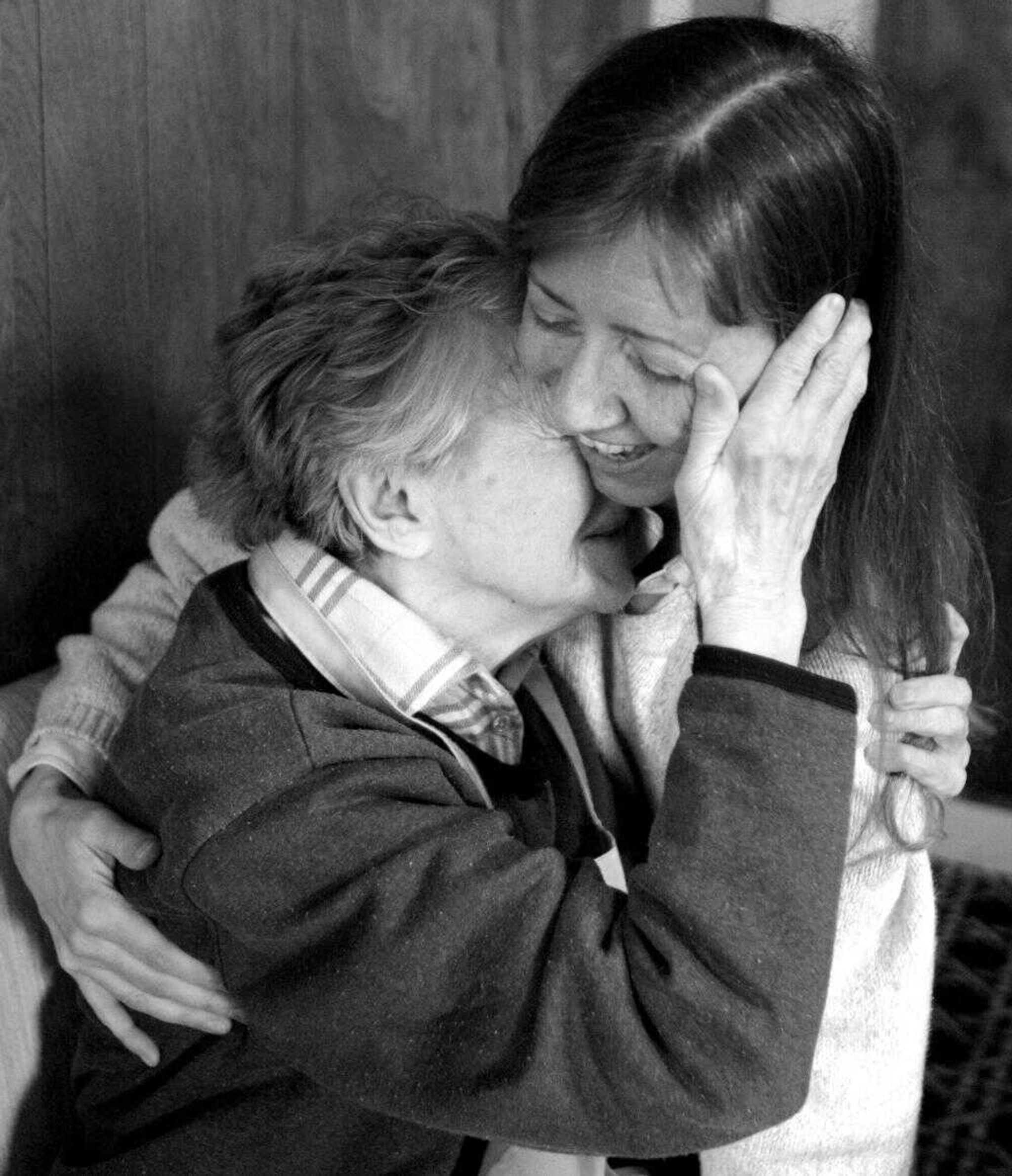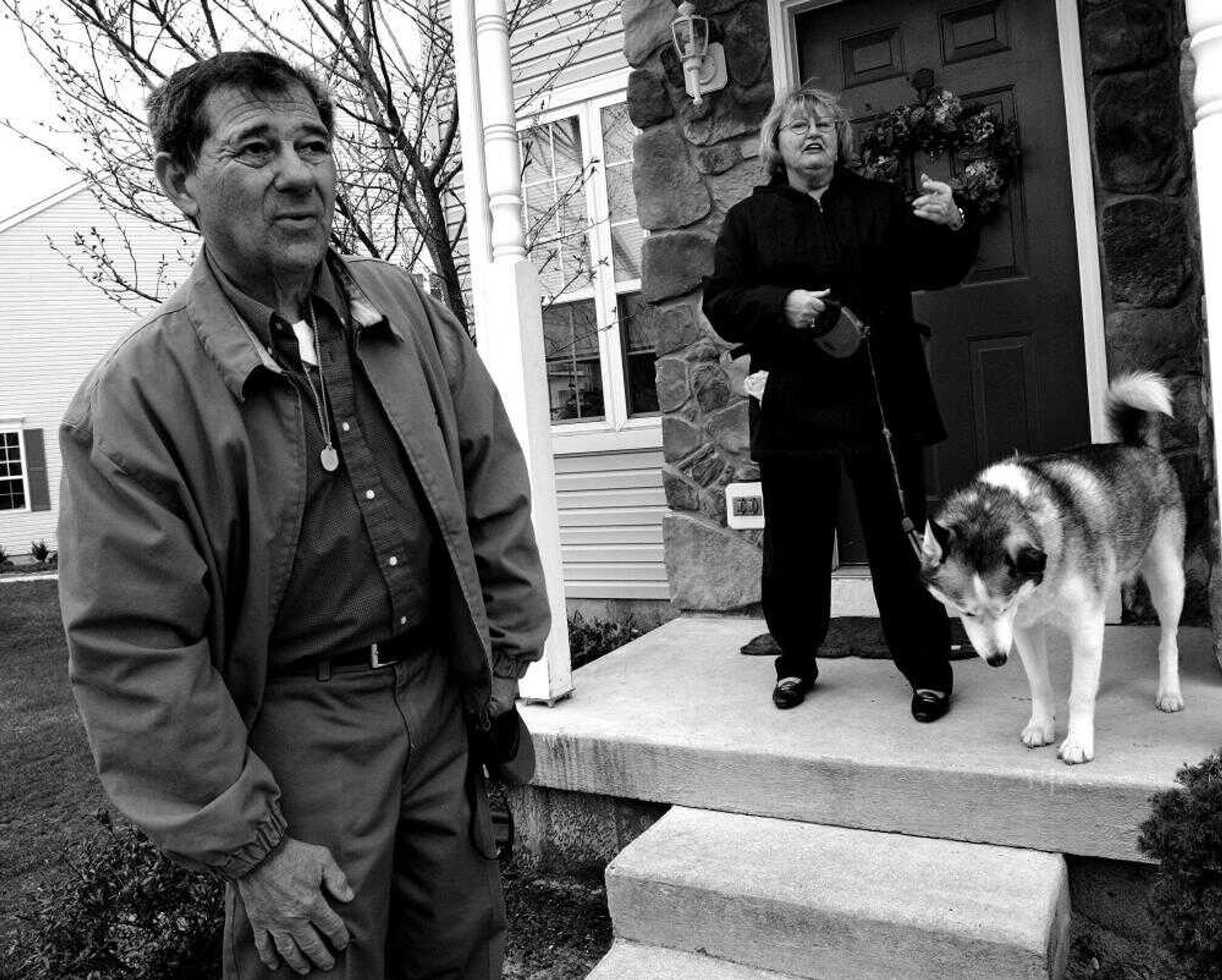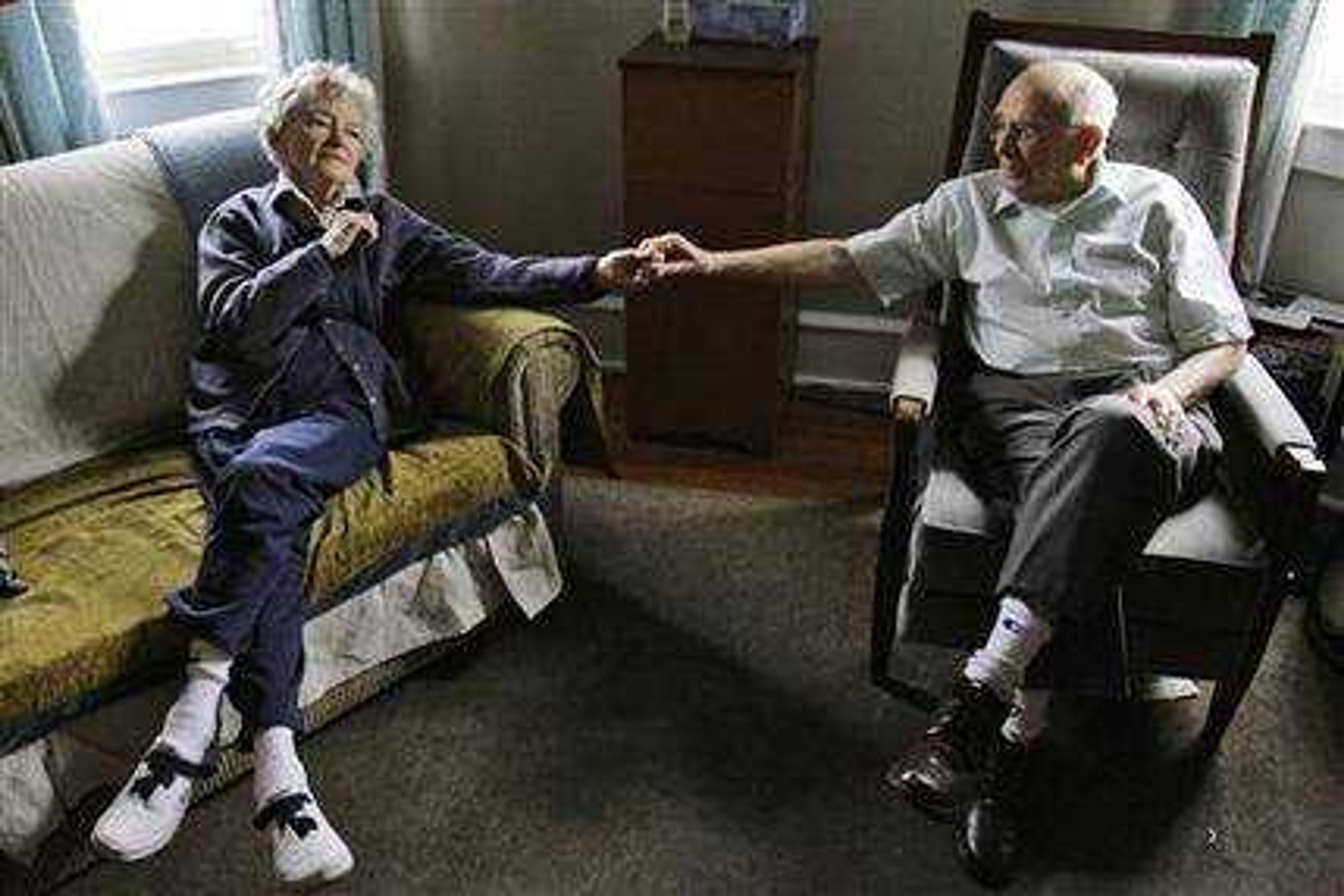Training eases Alzheimer's caregiving, but it's hard to find
The findings are stunning: Offering simple training to people struggling to care for loved ones with Alzheimer's disease not only eases their burden, it even can keep patients out of nursing homes for an extra 1 1/2 years. But the exciting also runs headlong into a grim reality...
The findings are stunning: Offering simple training to people struggling to care for loved ones with Alzheimer's disease not only eases their burden, it even can keep patients out of nursing homes for an extra 1 1/2 years.
But the exciting also runs headlong into a grim reality.
Alzheimer's caregivers seldom can make time in their daily grind to seek out that kind of help.
And when they do, they too often find waiting lists for services, or programs geared only toward people with advanced disease and not the larger pool in the purgatory that is dementia's decade-long middle ground between independence and helplessness.

Alzheimer's in America
More than 5 million Americans are living with Alzheimer's disease. It afflicts one in eight people 65 and older, and nearly one in two people older than 85.
Worse, as the population ages, Alzheimer's is steadily rising. Sixteen million are forecast to have the mind-destroying illness by 2050, not counting other forms of dementia.
Those figures are cited repeatedly in the push for more research into better treatments. But a frightening parallel goes largely undiscussed: As Alzheimer's skyrockets, who will care for all these people?
And will the long-term stress of that care set up an entire population -- once-healthy spouses and children -- to suffer years of illness, even early death?
Handling the wandering, aggressive outbursts and incontinence -- plus eventual round-the-clock monitoring -- is different than, for example, learning to lift someone who's physically impaired but won't fight the caregiver.

Those are skills that families must be taught, says Mary Mittelman of New York University's School of Medicine, who is leading a new movement to develop customized training programs for Alzheimer's care.
A family copes
Have a short conversation with Bob Melnick, and it's not immediately clear that anything's wrong with the smiling 67-year-old. He'll reminisce over old fishing photos; proudly tell of his two grown children.
Then the phone rings, and this former accountant fumbles it, unsure how to answer. He can't close the sliding glass door in his kitchen. At lunch, he carefully sets his hoagie on his place mat, next to the empty paper plate.
This is the often-hidden middle stage of Alzheimer's disease, the stage where caregivers seem to struggle most.
His wife, Dolores Melnick, has looked in vain for help. She considered quitting her job to care for her husband, only to learn that retaining health insurance for herself plus his Medicare expenses would cost a staggering $700 a month.
But what to do with Melnick while she's at work? He refuses adult day care. Insurance won't pay the $17 to $22 an hour that local home-health agencies charge for a visiting aide, and Mrs. Melnick couldn't afford that.
So she cobbled together a compromise: She pays a friend about $30 a day to stop by around noon for three hours, to make lunch, help walk the dogs and provide some companionship. Melnick spends the mornings and late afternoons alone, outfitted with an electronic tracking bracelet provided by the sheriff's department in case he wanders outside and gets lost.
A new approach
NYU's Mittelman says customized training can help caregivers ease the chaos, and proved it with a one-of-a-kind experiment.
She tested 406 elderly New Yorkers caring for spouses with Alzheimer's. Half received training tailored to their family's needs. Half got today's standard: a list of Alzheimer's resources.
Mittelman tracked these families for up to 17 years. Custom-trained caregivers kept their loved ones out of a nursing home for an average of 1 1/2 years longer than their untrained counterparts.
With annual nursing home costs now averaging $60,000, that's a savings of $90,000 per patient, Mittelman reported last fall in the journal Neurology.
It didn't come at the spouse's expense as trained caregivers experienced less depression and fewer health problems.
The research represents a major shift in scientists' approach to Alzheimer's caregiving -- from an emphasis on just giving families a break through respite care, to the idea of empowering them to better handle the stress of the job.
The challenge is how to spread those findings.
Connect with the Southeast Missourian Newsroom:
For corrections to this story or other insights for the editor, click here. To submit a letter to the editor, click here. To learn about the Southeast Missourian’s AI Policy, click here.








